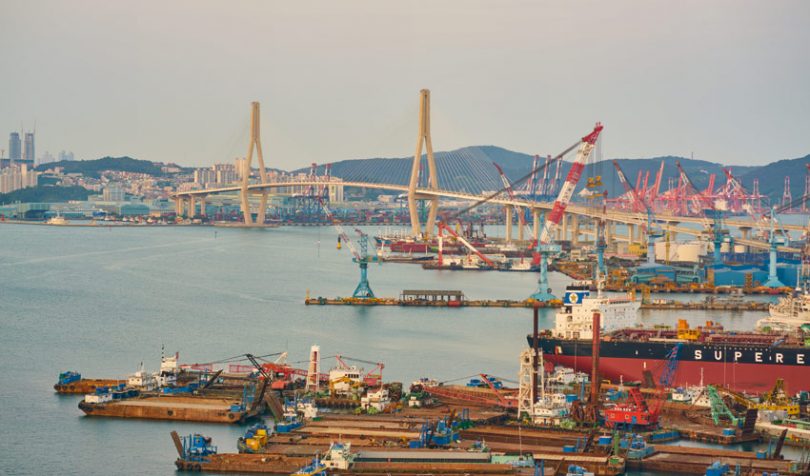Today South Korea’s Ministry of Science and Technology and the Ministry of Maritime Affairs and Fisheries announced the launch of a pilot blockchain system for tracking containers in the Port of Busan.
According to the statement, the port is the second largest port of transit in the world after Singapore. This relates to transshipment where containers are switched from one vessel to another and Busan accounts for 16% of total volume. Overall the port is the 5th busiest in the world (Source: Marine Insight).
The task of moving containers between ships makes efficient systems critical. It’s not just a matter of containers moving between vessels but also between different terminals at the port. The Ministries envisions blockchain as smoothing the movement of containers between piers, reducing data errors.
The movement in the port between terminals is done using shipping company trucks. The trucks are often empty for one leg of the inter-terminal journey so there’s a hope that improved data might enable better use of the vehicles.
Old versus new
In the current system to move containers between vessels involves several steps. A container list is provided to the freight forwarder which prepares a dispatch plan. In turn they notify the terminal operator and other freight forwarder. The problem is the communications, whether wireless, email or fax, are error-prone.
Currently, drivers use paper for container documents and have to wait at the terminal gate while it’s checked. Instead, the documentation will be shared using blockchain.
One of the most significant efficiency savings relates to quantity checks which take 1 to 2 days and will become real-time using the blockchain system.
Bigger picture
This project is one of six pilots in Korea’s “Blockchain Technology Development Strategy” and will operate for a year.
In June the Ministry of Science and Technology announced an initiative for food traceability relating to beef. It also showed plans for a project to make it easier to apply for a mortgage which currently involves visiting a Citizens’ Center and the National Tax Service.
Other projects include safe school food, used car history management, and social sharing. The Ministry committed 10 billion won ($9 million) to the strategy.
Separately last week the Korean government announced a blockchain based power grid for Busan City.







